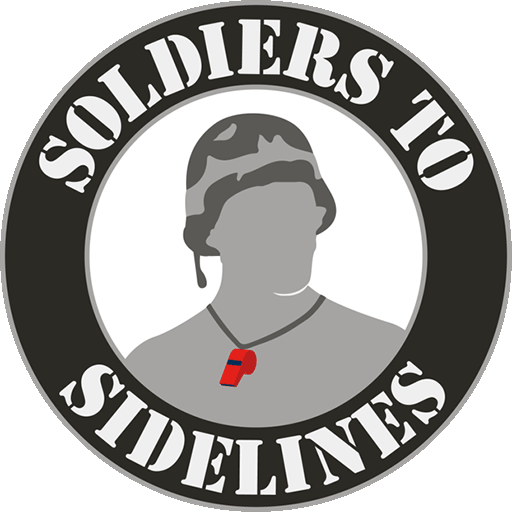“Pride, poise, team.” These three words, echoing the core values of military service, form the foundation of coaching legend John Beilein‘s philosophy. But how does a decorated basketball coach’s playbook translate to the world of veteran coaches?
A couple of years ago, we talked to Coach Beilein, who is known for his tenure at the University of Michigan. There, he led the team to two national championship games and shared key strategies that can benefit our Soldier Coaches at all levels.
Building a Winning Culture
Coach Beilein emphasized that the foundation of any successful team is its culture, a concept familiar to our military community. At Michigan, he focused on teaching and living core values daily, much like the ethos instilled in service members. This approach transformed the program, leading to consistent success.
“Pride, poise, team,” Beilein shared, were the pillars of his coaching philosophy. These values, which resonate strongly with military ideals, guided not just how players performed on the court, but how they conducted themselves as student-athletes.
Practice Makes Perfect
One of Beilein’s most striking insights was his approach to practice, mirroring the military’s emphasis on preparation and drill. “If you’re going to be ready to use it, take two hours to plan every second of practice,” he advised. This level of preparation ensures that every moment on the court is purposeful and contributes to player development, much like mission planning in the military.
Beilein structures practices to keep players constantly engaged, using a variety of drills that maintain high energy levels while improving skills. This approach aligns well with the STS philosophy of translating military leadership skills to effective coaching methods.
Fostering Team Unity
A key aspect of Beilein’s coaching strategy is fostering a sense of unity among players, a concept deeply ingrained in military culture. He encourages players to compete not just for themselves but for their teammates, echoing the camaraderie found in military units.
Beilein shared an anecdote about a challenging plane incident the team faced, which ultimately brought them closer together. The team’s response to this adversity, rallying around the concept of “sudden change,” demonstrates the kind of resilience and adaptability that our Soldier Coaches bring to their teams.
Adapting to Modern Challenges
Coach Beilein also touched on the evolving landscape of sports, including the impact of analytics and the changing dynamics of player development. He stressed the importance of balancing data-driven decisions with intuition and experience, a skill many veterans have honed through their military service.
Key Takeaways for Soldier Coaches:
- Invest time building and reinforcing team culture daily, drawing from your military leadership experience.
- Plan practices meticulously, applying the same dedication to preparation you used in your military career.
- Design drills that keep players engaged and improve multiple skills simultaneously, utilizing your training expertise.
- Foster a team-first mentality that motivates players to perform for each other, much like the unit cohesion in the military.
- Be prepared to adapt to “sudden changes” and use them as opportunities for growth, leveraging your military adaptability.
- Balance modern analytics with sports intuition and the leadership experience gained from your service.
Whether you’re coaching youth leagues, high school teams, or aspiring to college-level coaching, these insights from a respected coach can help elevate your program. Remember, success in coaching isn’t just about X’s and O’s—it’s about building a culture of excellence that brings out the best in every player, a skill that our Soldier Coaches are uniquely qualified to deliver.
Ready to transform your leadership experience into coaching excellence?
Learn more about our upcoming workshops and clinics and join the ranks of Soldier Coaches, making a difference in communities nationwide.


Recent Comments